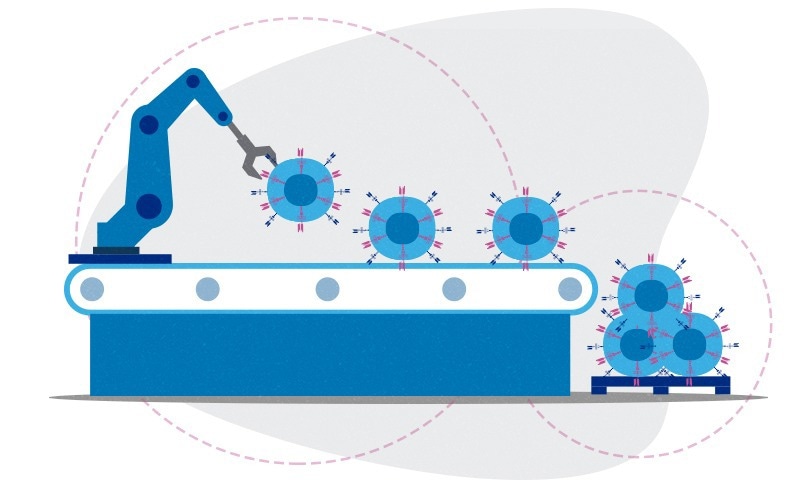In CAR T-cell immunotherapy, T cells taken from the patient’s own blood are modified to contain so-called chimeric antigen receptors (CAR), which provide the T cells the ability to target and eradicate tumor cells.
 A new technique enables the production of generic CAR T cells at scale, making CAR T-cell immunotherapy more accessible to patients with cancer. Image Credit: AdobeStock/Sebastian Stankiewicz/Boston Children’s Hospital
A new technique enables the production of generic CAR T cells at scale, making CAR T-cell immunotherapy more accessible to patients with cancer. Image Credit: AdobeStock/Sebastian Stankiewicz/Boston Children’s Hospital
Although CAR-T therapy is an effective treatment for some leukemias and lymphomas, many patients who require it do not have access to it. It can be challenging to isolate sufficient numbers of functional T cells from patient blood, and creating CAR T cells specifically for each patient is expensive and time-consuming—time that patients might not have on their side.
CAR T-cell therapy may become more generally available thanks to a novel method created by George Q. Daley, MD, PhD, and his team at the Boston Children’s Hospital Stem Cell Program. The researchers created a way to create generic CAR T cells that could be mass manufactured for use in numerous patients using induced pluripotent stem cells (iPS cells). On August 4th, 2022, they published their findings in the journal Cell Stem Cell.
We show that generic iPS cells can be converted to CAR T cells not only more efficiently, but more effectively—creating an enhanced CAR T cell that more faithfully resembles the gold-standard clinical-grade cells we currently use. Our strategy could enable ‘off-the-shelf’ CAR-T therapies and help more patients access these treatments.”
George Q. Daley, Study Senior Investigator and Member, Cancer and Blood Disorders Center, Boston Children’s Hospital
Enhanced anti-tumor activity
Daley, first author Ran Jing, PhD, and their coworkers had to solve the difficulty of obtaining mature, fully functional T cells from which CAR T cells could be generated, despite the fact that iPS cells are, in theory, an infinite source of diverse cell types. Researchers have previously had difficulty with this due to iPS cells’ propensity to create immature, embryonic cells in the Petri dish.
The scientists focused on the enzyme EZH1 because it limits the differentiation of mature lymphoid cells while investigating the epigenetic elements involved in blood development. They discovered that suppressing EZH1 enabled iPS cells to differentiate into mature T cells. Additionally, the team created a culture system that does not require co-culturing with mouse-derived cells, which is laborious and results in T cells that are not sufficiently mature.
The anti-tumor activity of the T cells created from iPS cells was comparable to that of CAR T cells created using techniques that are already being employed in clinical therapy. When compared to T cells created using earlier iPS-cell techniques, these new cells demonstrated improved abilities to kill cancer cells in the lab and to eradicate cancer cells in live mice.
After many years of promise, it seems that iPS cells are finally yielding new therapeutic approaches to the treatment of diseases like cancer.”
George Q. Daley, Study Senior Investigator and Member, Cancer and Blood Disorders Center, Boston Children’s Hospital
A new firm (yet to be named) is being created around the technology by Boston Children’s and ElevateBio, a technology-driven business focused on the development of cell and gene therapies.
Source:
Journal reference:
Jing, R., et al. (2022) EZH1 repression generates mature iPSC-derived CAR T cells with enhanced antitumor activity. Cell Stem Cell. doi.org/10.1016/j.stem.2022.06.014.